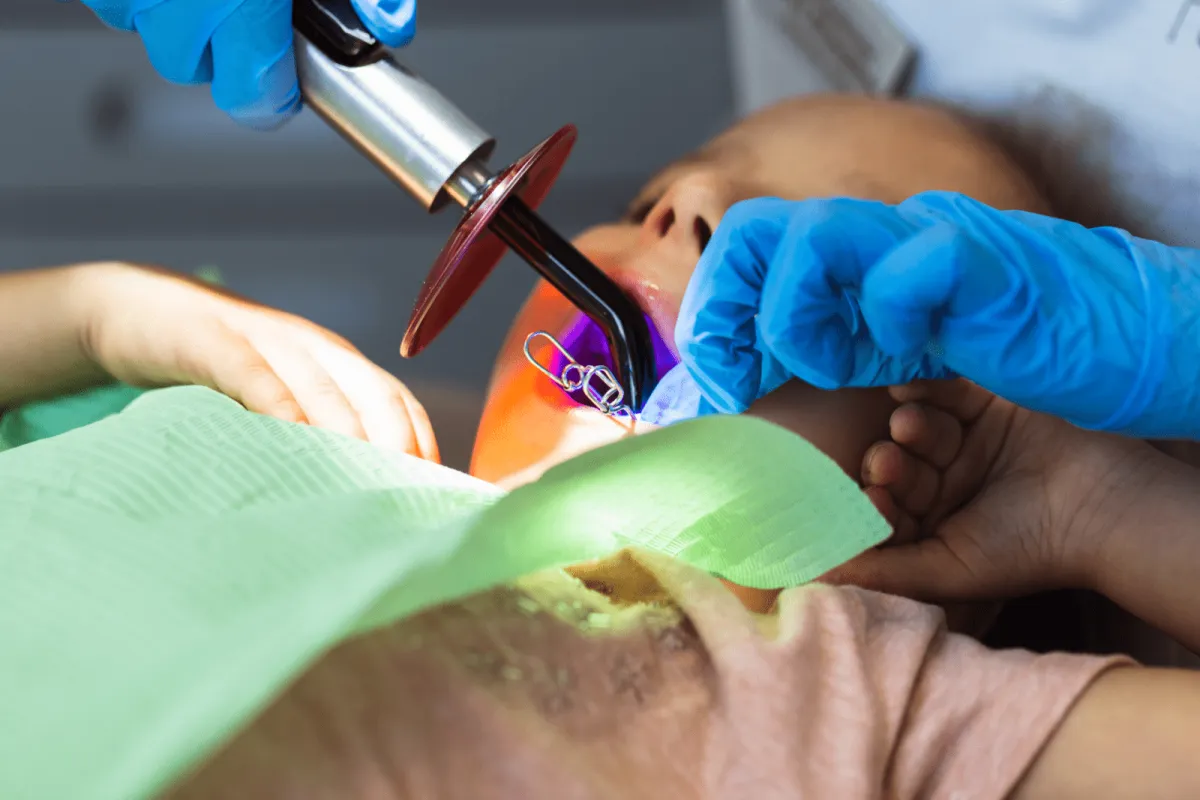Read All About It
Dental Related Articles


Should My Child Get Dental Sealants?
Many parents wonder what dental sealants are and if their child should get them. Although there are pros and cons to dental sealants, the resounding answer is yes, children should get dental sealants to help protect their teeth from dental decay. With their protective nature, ease of application, and cost-effectiveness, dental sealants are beneficial for everyone, but especially for children.
What are dental sealants and how are they applied?
Dental sealants are plastic coatings painted onto teeth to prevent decay. The sealants are made of a thin plastic material that is painted onto chewing surfaces in a painless procedure.
The application process is simple and noninvasive. The dentist will clean and dry the chewing surfaces of the teeth, then apply an acidic gel that is used to roughen up the tooth surfaces. The roughening of the surface helps the sealant grip and hold onto the teeth.
After roughening, the teeth are rinsed and dried again. Then, the sealant is applied to the chewing surfaces of the molars and is cured with a blue light called a dental curing light. Dental curing lights only take a few seconds to harden fillings or sealants using either Halogen or LED lights.
Which teeth need sealants and how long do they last?
Most dentists will seal the molars and premolars. Molars are the teeth in the back of the mouth with the broadest chewing surfaces. Premolars are located in between the canine teeth and the molars. Adults usually have eight premolars (four in the top jaw and four in the bottom jaw). Children usually have their adult teeth by the age of 12 to 14 years.
The Centers for Disease Control (CDC) states that sealants can last for years, but do have the potential to fall off. It is important to get them checked during dental visits in case of chipping or wearing. Sealants can be replaced as needed.
Benefits of sealants
Sealants can prevent cavities from developing and are especially beneficial for children, who may not have good oral care routines in place. In general, dental sealants can:
Protect the deep grooves in teeth from developing cavities
Protect teeth immediately after application
Save parents money in the long run by avoiding the cost of fillings
Last for many years because of their durability on the chewing surfaces of teeth
Prevent 80% of cavities for the first two years, continue to protect against 50% of cavities for up to four years, and stay in the mouth for up to 9 years, according to the CDC.
In addition, children without sealants are generally found to get three times more cavities than children who have them. And while sealants are a great preventative measure, it is still important to brush, floss, and use mouthwash regularly.
Are sealants safe and effective?
Dental sealants, although proven as cavity prevention in children and adults, are not without controversy. Many parents are concerned their children may be exposed to a chemical called bisphenol A or BPA.
According to WebMD, BPA is a chemical that has been used to harden plastics for more than 40 years. It can be found in many different products like dental sealants, food containers, medical devices, the lining of food cans, compact discs, as well as in air, dust, and water.
While BPA is not a direct ingredient in dental sealants, small amounts of it can be created when the sealants make contact with saliva. However, the dentist can scrub and rinse the sealants to lessen the effect. Small levels of BPA are shown to rise in saliva for up to three hours after the procedure, then disappear after 24 hours. According to Delta Dental, no adverse health effects are associated with BPA in dental sealants.
Sealants are as effective as the practitioner who places them. It is important that the sealants are applied correctly. Otherwise, a child’s bite may become uneven. In this case, the dentist may need to smooth down the affected tooth or teeth to fix it. However, dental sealants are made to last a long time and should continue to be effective for years to come.
How much do sealants cost and does insurance pay for them?
The cost of dental sealants is usually $30 – $60 per tooth, but insurance usually covers most, if not all of the cost, depending on an individual’s plan. This is much cheaper than having to pay hundreds of dollars in the future for whatever fillings a child may need.
Conclusion
Dental sealants are a safe and easy way to prevent cavities, while also being cost-effective. Parents should consider getting their children sealants to protect them from the aches and pains of tooth decay and to protect themselves from paying large sums of money for future procedures that could have been prevented by using dental sealants for their kids in the first place.
For more information, contact Dr. Joby Hurst.

19 INVERNESS CENTER PARKWAY, STE 250, BIRMINGHAM, AL 35242
TEL: 205.969.7454
E-MAIL: [email protected]
2018 © ALL RIGHTS RESERVED | PRIVACY POLICY | TERMS AND CONDITIONS
Site by Trustway Marketing Powered by Kyrios Systems